Phone Wars
The world's most successful technology companies are engaged in all-out war to power the plastic in your hand, so much more than a mere phone or computer.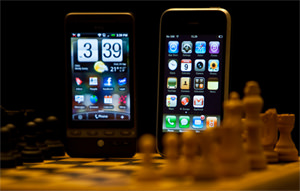
A man stares at his phone, oblivious to his daughter’s soccer game. Another man fiddling with his phone jumps into what he thinks is the back of a taxi and spews directions, not realizing he’s actually in a cop car.
This is the world we live in as depicted by the advertising people at Microsoft, and although commercials like these didn’t persuade many people to buy Microsoft-branded phones, they did capture the global phenomenon that is reshaping how we communicate, learn, consume and create. The world’s most successful technology companies are engaged in all-out war to power the plastic in your hand, so much more than a mere phone or computer.
More people bought smartphones last quarter than computers. More and more Americans now get their news from their phones. For many of us, it’s also how we check our email, capture and share our ideas, take photos, buy and listen to music, play games, find directions and keep in touch with friends.
The companies that make the software that makes smartphones smart are mainly interested in monetized services — such as music streaming and downloads — and advertising. These phones know where you are, who you are, who your friends are and how to get hold of them. (We should care to know as much about the corporations to which we entrust all that information.) But for most, the concerns are more practical. What are the differences between the iPhone and Android phones? Which is better?
I’m not in a position to answer deep privacy concerns or address the long-term social implications of the screen-obsessed culture, but I’m more than happy to give you my take on which phone you should buy. After all, progressives too play Angry Birds.
To that end, I got my hands on three test phones, the iPhone 4, the Google/Samsung Nexus S, and the Samsung Focus, each a fair representation of one of the three main platforms vying for your attention — iOS (Apple), Android (Google) and Windows Phone 7 (Microsoft), respectively. Just to be clear, this is a review of the software, not the hardware.
While there is only one iPhone worth considering, there are dozens of Android devices, most of which are highly customized, and a growing number of Windows Phone handsets. But each camp’s operating system has pronounced strengths and weaknesses, and that is what we’ll be putting to the test.
A note: There are other major platforms, including some with much bigger market share than those I’ve chosen to review. Here’s why I didn’t consider them: Research in Motion has many followers in the cult of BlackBerry, but all the lawyers and corporate executives in the world won’t change the fact that this operating system lags far behind; Palm’s WebOS will benefit from HP’s deep pockets and ambition, but it’s even less proven than Windows Phone, which at least has Windows Mobile’s lineage; Nokia is still a force, but the pioneering phone maker is now running Microsoft’s bits. My apologies to those fanboys and -girls. Keep the faith.
The iPhone or iOS
It’s easy to forget now that the iPhone launched this revolution, defining our idea of what the smartphone is and should be. Apple built a device that was more ambitious than anything else out there, and it worked better, too. Clearly Apple had a winning formula. In some areas, the iPhone continues to outpace competitors. In others — well, there’s a reason Apple is running “if you don’t have an iPhone …” ads, and it’s not because they’re outselling the competition.
Advantages:
Power management. Apple devotees take it for granted, but the iPhone is unrivaled in this department. The iPhone manages to do a fairly decent job of multitasking without asking to be plugged in more than once a night — and that’s while keeping Wi-Fi, Bluetooth and GPS on all the time.
Music and Video. It’s the best iPod-style device on the market. Buying and transferring music, podcasts and videos are easy, as long as you stick with iTunes. Somehow this concept baffles Google.
App selection and quality. The App Store was the first and developers like it, so it has the most apps. There are many more apps available exclusively for the iPhone than for any other phone and, while your selection is limited by the censors at Apple, who want to keep you safe from porn, said apps tend to be more polished.
Security. Apple is pretty involved in most aspects of the iPhone and, as a result, it’s like an Orange County gated community — convenient, tidy and secure (but God help you if you like bohemian coffeehouses). Android users have access to wilder and crazier stuff, but they also spend more time looking over their shoulders.
Disadvantages:
Notifications. Do you like it when you’re browsing the Web and an ad pops up across the middle of your screen, blocking your view? Of course not. So why would anyone want text messages and other notifications displayed in the same obnoxious fashion? You don’t and I don’t. But for some reason, Apple is taking an eternity to devise an alternative.
Useless home screens. Apple treats home screens (aka the desktop) as nothing more than app storage. There are no widgets to tell you the weather, no tiles to keep you in touch with your friends — just a barren wasteland of apps and, more recently, folders to house even more apps.
Do as you’re told. As foreshadowed above, Apple can be a bit of the overbearing parent. There’s an upside — security and quality control — but it can also be stifling and limit the usefulness of the phone. For example, Amazon recently released its Cloud Player, which lets you put your entire music library on Amazon’s servers and stream your music to any Web browser or phone — as long as it’s an Android phone. Whether Apple sees the service as competition to its own music store or Amazon didn’t want to bother jumping through hoops only to be denied access at the eleventh hour, we can’t be sure. The point is this: Often cutting-edge services — Google Voice when it was first launched is another example — are blocked by Apple for bad reasons. But Apple’s micromanaging can be frustrating in other ways, too. The company known for claiming to discover the “best” way of doing something — whether it’s copy and paste, multitasking or listening to music — is loath to allow you alternatives.
Windows Phone 7
If the iPhone is the standard by which the others are judged, Windows Phone (nee Windows Mobile) views it as that most-popular-girl-in-school who you hoped would suffer a tragic accident. In some ways the two platforms are very similar: Both use a rich, resource-intensive desktop program to keep files synced and both have a mostly locked-down approach to apps and services. But, like any angsty teenager, Windows Phone also wants to do its own thing. Microsoft hasn’t sold many Windows Phone phones, but don’t think they’re giving up in Redmond. The company is reportedly paying Nokia something like a billion dollars to use the software on its new products. Advantages:
Office. As you might expect, Microsoft does a pretty good job of getting the Office experience — so ubiquitous on desktops — onto a phone. But it’s not just good for Office; it’s way more functional than anything Word- or Excel-like that Google and Apple have come up with.
Zune. Microsoft recently announced the death of its Zune player, saying the company’s failed attempt to kill the iPod (itself now dying slowly of natural causes) will in the future be found only as a feature of Windows Phone, and that’s just fine. Let me admit here that I have Zune envy. For $14.99 a month you get to download or stream as many songs as you want — and, unlike with other services, you get to keep 10 of them forever.
Xbox. As with Office, Microsoft has done a pretty good job of integrating one of its most successful products into its new phones — at least that’s what I’ve read. I had a difficult time getting my Xbox Live account working with the phone and gave up after a short while.
Disadvantages:
Fewer apps. As the newest kid on the block, Microsoft resorted to paying developers to make apps for its new OS. They’re at work, but for now there just aren’t that many apps, compared to the others.
Immature OS. There are certain features — cut, copy and paste, for instance — that are missing from Windows Phone. They’re on the way, we’re told, just be patient. As my Xbox experience above tells you, patience is not among my virtues. Windows Phone’s relative newness also means it is slightly buggier — but not by much.
Android
Google’s OS has come a long way in both form and function. The user interface is finally getting some cohesion and polish and you can now leave the house without a handful of extra batteries.
Advantages:
The Internet. Google and its fans make much of Android’s openness, but its real advantage is best captured by a quote of Google executive Vic Gundotra: “We discovered something really cool. It’s called the Internet.” You never have to plug an Android phone into your computer. Everything lives in the cloud. When you buy an Android phone, you tell it your Gmail address and it begins downloading your apps, syncing your contacts and reading your mind. You can install apps on your phone from your Web browser or send yourself directions the same way.
Voice. Like all voice commands, Android’s aren’t perfect — but they’re getting there. In any function where you can type, you can use speech-to-text. You can also interact with the phone — saying “Send text to George W. Bush, thanks for nothing!” will send such a text, provided you have the contact info.
Customization and Flexibility. Android is much more open than the competition. If Apple is a heavy-handed parent, Google is the older sibling who buys you wine coolers. Download whatever app you want, move the buttons around, and tweak to your heart’s content.
Navigation. Google Maps with turn-by-turn navigation isn’t just free, it works really well. Google also includes walking, cycling and public transportation directions.
Google apps. For people who use Gmail, Google Talk and the rest, Android offers excellent native apps that sync perfectly with the Web and cannot be found on other platforms.
Widgets. A phone’s desktop can tell you more than what apps you have; it can and should be alive with information. Windows Phone has “live tiles” to that effect, but they’re not as functional or fun as Android’s widgets, which display everything from the weather to music controls.
Faster browsing. Android’s Web browser is reportedly much faster than the iPhone’s, although individual experiences may vary depending on network and hardware.
Rapid evolution. Google releases new versions of the Android OS at a breathtaking pace, often adding features like turn-by-turn navigation that no one saw coming. Carriers tend to drag their heels in rolling these out, but there are ways to get the good stuff as soon as it’s ready.
Disadvantages:
Living in fear. I’m a big fan of Google’s open approach, but I’d be lying if I said I wasn’t worried about some of the programs I’ve downloaded from the wilds of the Internet. We run a lot of sensitive information through our phones — credit card numbers, addresses, sexts. Google’s approach is to let you know how much access your programs have, but that only makes me more nervous.
Battery life. Android’s power management is much improved, but it’s still noticeably worse than iOS or Windows Phone. This may be an unavoidable side effect of true multitasking, which only Android has, but that’s cold comfort when your navigation cuts out at the intersection of Van Nuys and Nowhere.
Openness perverted. Google is adamant that the manufacturers and carriers who make and sell Android phones can customize the OS however they like. The result is somewhere between moderately worse and worth throwing in a trash bin. Why these companies think consumers prefer a phone that’s slower, uglier and permanently bundled with a NASCAR app is a mystery. These customizations also slow the pace of Android updates, and even limit some of the operating system’s basic features, like free Wi-Fi tethering and the ability to side-load apps.
Media management. Until Google releases its long-rumored magic cloud for music, you’re better off paying for a subscription streaming service like Rdio than bothering with media files. With no iTunes or Zune, you can try a third-party syncing program or drag and drop. Either way, it’s mostly just a drag.
Confusing UI. Google has hired celebrity interface designer Matias Duarte to clean up Android. In the meantime, the OS continues to be a mess of long presses, hidden menus and other contradictory metaphors. It takes time to learn, and the intricacies elude some users.
Internet-addicted. A lot of the features listed as Android advantages vanish the moment the phone loses connectivity. Even a slow connection can impair your happiness. It’s one thing to discover the Internet, it’s another to be hopelessly dependent on it.
Having said all that …
After spending a few weeks with these three phones, I came to the conclusion that there were two heavyweights and one promising upstart. Windows Phone 7 is attractive and eager, and it could grow exponentially as Microsoft leverages its resources and new partnership with Nokia. If these phones were people I met on my bus commute, I would keep smiling at Windows Phone, but I would make plans to grab coffee and a movie with iOS and Android.
Whom Windows Phone 7 is for: Anyone for whom tightly integrated Office, Xbox or a great music streaming service is worth the sacrifices.
I promised to do only a software review, but the iPhone is much more exciting than the others in the hardware department and that deserves mention. It has a great screen (although too small for my taste) and an excellent camera. It feels extraordinarily well built. Too bad the OS is so boring. It looks exactly like my first real smartphone — the original iPhone. Apple has added countless new features over the years, but lately the company has been playing catch-up, and the software — from the intrusive notifications to the pinstripe settings background — feels dated.
Those grievances aside, no other mobile OS is as polished or reliable. The iPhone is Old Faithful. It works extremely well and continues to be the most effective convergence device ever created. Even when I’ve strayed to Android, I have relied on an old iPhone 3GS for music. That’s just sad.
Whom iOS is for: Anyone who wants the power of a smartphone with the size and convenience (battery life, simplicity) of a traditional cellphone. Also, anyone already plugged into Apple’s ecosystem or for whom a trip to the Apple Store is like visiting a porn shop in Spain.
Android has way more pluses and way more minuses. Not to resort to clichés, but you need to be kind of a nerd to get the most out of Android — and if you do, it makes the other phones reviewed here look crippled. As Android grows to dominate the market, average consumers are tossing themselves into the deep end and surviving just fine.
Whom Android is for: The geek who wants something new from her phone every two weeks, whether it can hold a charge or not. Charles Darwin, who believed in evolution long before Google made it a business model. And anyone on T-Mobile or Sprint.
Android is needlessly unrefined, but if you can look past its numerous blemishes, it’s the most powerful, feature-rich, future-friendly mobile OS, which is why it’s also my OS. Windows Phone 7 has some very cool stuff on the way, but I still have trouble throwing my lot in with Microsoft’s underdog. The iPhone isn’t just beautiful and convenient, it’s a pretty good deal. And there are lots of people who weighed the competition and went for the iPhone. When it comes to these devices, especially the iPhone and pure Android, just follow your heart. You can’t go wrong.
Author’s note: Thanks to Truthdig’s Lucy Berbeo, who obtained all the phones and made this review possible.
Your support matters…Independent journalism is under threat and overshadowed by heavily funded mainstream media.
You can help level the playing field. Become a member.
Your tax-deductible contribution keeps us digging beneath the headlines to give you thought-provoking, investigative reporting and analysis that unearths what's really happening- without compromise.
Give today to support our courageous, independent journalists.
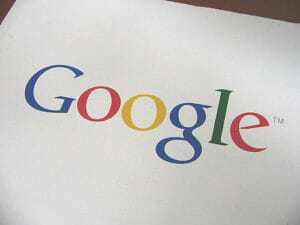
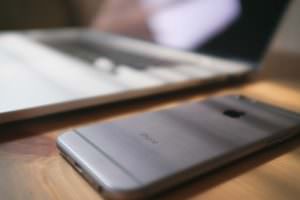
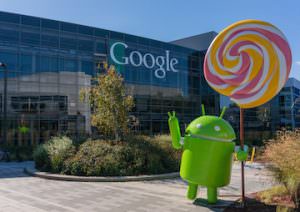
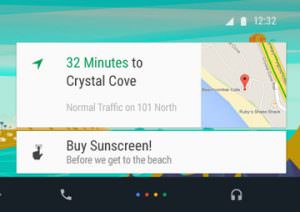
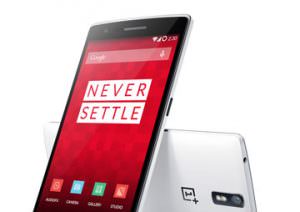
You need to be a supporter to comment.
There are currently no responses to this article.
Be the first to respond.